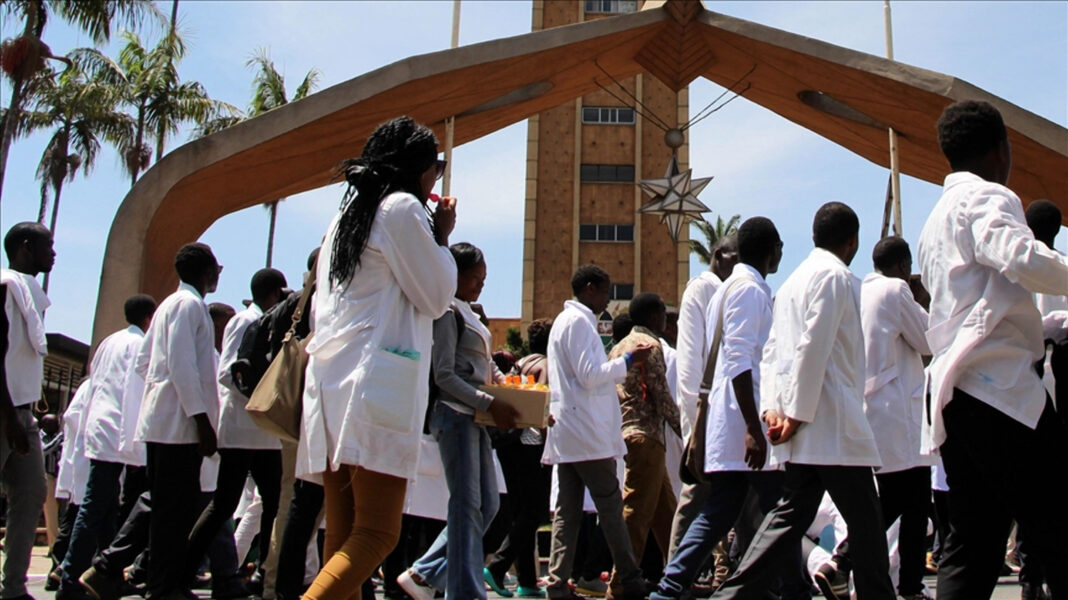What does it take to become a medical doctor in Kenya? What stages will a medical trainee have to pass through? Well, this is a question whose prominence has risen following the doctors’ strike that started in March 2024.
Among the grievances presented by the doctors was the failure by the Ministry of Health to place thousands of upcoming medical interns at hospitals for their internships. This placement is one of the mandatory steps towards acquiring a practice license.
In a bid to shed light on what it takes to become a doctor in Kenya, Dr. David Kariuki, the Chief Executive Officer of the Kenya Medical Practitioners and Dentists Council, penned the following piece:
“Year after year, the Bachelor of Medicine and Bachelor of Surgery (MBChB), and Bachelor of Dental Surgery (BDS) remain among the top choices for the best-performing students, despite the cut-throat competition for the few slots available.
Medicine and dentistry are challenging. On the first day you enter class, expect to start a long journey starting with learning the normal body functions, later diseases and their management, and keeping in mind that without diligence, one may not make it to the final graduation list.
Looking back, I found the initial exposure to human anatomy in the first year and the deeper dive into pathology in the third to be the most exciting but challenging, as these subjects laid the foundation for my understanding of the human body and disease.
The clinical years spent at the teaching hospital consolidated further understanding on how to approach and manage diseases, not forgetting the community health rotations that provided insight into health promotion and disease prevention.
Upon graduating after a challenging five (currently six) academic years, the graduate is expected to undertake a 13-month compulsory supervised internship at approved training centres.
During this period, the intern is expected to consolidate his or her academic knowledge and translate it into practical skills and attitudes which will enable them to be competent medical or dental practitioners.
The medical intern undergoes rotation in critical areas of internal medicine, surgery, paediatrics and child health, obstetrics and gynaecology, psychiatry and community health.
Is your spouse, sibling, friend, neighbour having depression and you’re unaware?
A dental intern undergoes rotations on critical areas of oral and maxillofacial surgery, prosthetics and conservative dentistry, periodontology, paediatric dentistry and orthodontics, and community dentistry. By the end, the intern is expected to have acquired the needed practical knowledge set to practice.
Aspiring specialists can then embark on a further at least four years of specialized postgraduate training.
What they do not tell you is that along with your career in medicine or dentistry, you will continuously have to invest in gaining knowledge. Every day new procedures, techniques, treatments, and medicines are being developed. It is important to keep abreast of all of these to ensure you deliver the highest quality of service to your patients.
Some of the interesting and new areas that you will be exposed to are physiology, biochemistry, bioethics, research and AI.
But before students, parents/guardians invest in taking up medicine or dentistry, they must ensure that the schools and programmes are accredited by the Kenya Medical Practitioners and Dentists Council (KMPDC), which is mandated by law to regulate the training and practice of doctors in Kenya.
The KMPDC sets the standards of training, assessment of training institutions to ascertain their capability and assessment of internship training centres.
There are now 13 MBChB (Medical) and 2 BDS (Dental) accredited universities in Kenya. Accredited colleges are recognised by East African Community partner States. It is essential to fulfill the KMPDC’s minimum KCSE subject criteria to prevent registration problems when one returns to Kenya.
A version of this opinion feature by Dr. David Kariuki, the Chief Executive Officer of the Kenya Medical Practitioners and Dentists Council, was also published in the Business Daily.




